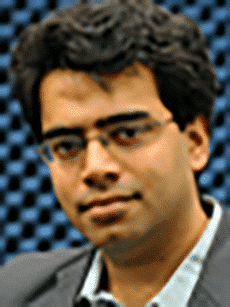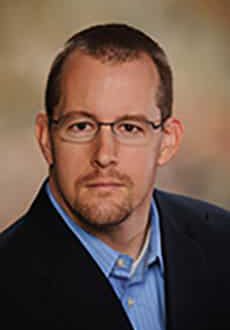Enabling the Third Wireless Revolution: Transformative RF/mm-Wave Circuits, Wireless Systems and Sensing Paradigms
Date of original webcast: Tuesday, May 8, 2018
Duration: 1 hour
Summary
Over the past 30 years, we have reaped the benefits of two wireless communication revolutions, which have had significant social and economic impact. The period from 1990-2000 saw the mobile wireless communication revolution, as cellular mobile telephony enabled human beings across the globe to be instantly connected with each other. The period from 2000 to the present day is witness to the mobile wireless data revolution, as 3G and 4G networks have brought the Internet to our fingertips. However, as massive as the amount of data that exists on the Internet is, it pales in comparison to the amount of data inherently present in the constitution of our physical world. The next wireless revolution will be the mobile wireless-reality revolution, which will bring the physical world to our fingertips. RF, mm-Wave and terahertz communication, imaging and sensing devices will enable us to interrogate the physical world and create virtual or augmented worlds in ways that exceed and augment human sensory situational awareness. The wireless-reality revolution will require a quantum leap forward in our ability to control and manipulate the RF-to- THz electromagnetic spectrum, and in our ability to transmit, acquire, aggregate and process the associated data.
I will describe recent research on high-power and energy-efficient millimeter-wave power amplifiers, transmitters and large-scale phased arrays that have drawn interest for next-generation 5G cellular networks. I will also describe recent work on extreme-bandwidth (>20Gbps) communication links at millimeter-waves for applications such as virtual and augmented reality. I will also briefly cover other novel wireless communication paradigms, including massive MIMO and full-duplex wireless, that enable extremely-high spectral efficiencies and data rates at lower RF frequencies. I will also talk about ongoing efforts towards the realization of city-scale testbeds that deploy advanced wireless hardware supporting mm-Wave, massive MIMO and full-duplex operation, enabling higher-layer systems research for the first time at city scales. Finally, I will touch upon new ideas on how to converge communications, imaging and sensing, enabling city-scale communication infrastructure to be repurposed for city-scale imaging.
Attendance is free. To access the event please register.
Note: Sponsored content, by paid advertisers, has not been subject to peer review. By registering for this webinar you understand and agree that IEEE may share your contact information with the sponsors of this webinar and that both IEEE and the sponsors may send email communications to you in the future.
Speakers

Harish Krishnaswamy
Associate Professor and the Director of the Columbia High-Speed and Millimeter-Wave IC Laboratory (CoSMIC)
Columbia University
Harish Krishnaswamy received the B.Tech. degree in electrical engineering from IIT Madras, Chennai, India, in 2001, and the M.S. and Ph.D. degrees in electrical engineering from the University of Southern California (USC), Los Angeles, CA, USA, in 2003 and 2009, respectively. In 2009, he joined the Electrical Engineering Department, Columbia University, New York, NY, USA, where he is currently an Associate Professor and the Director of the Columbia High-Speed and Millimeter-Wave IC Laboratory (CoSMIC).
In 2017, he co-founded MixComm Inc., a venture-backed startup, to commercialize CoSMIC Laboratory’s advanced wireless research. His current research interests include integrated devices, circuits, and systems for a variety of RF, mmWave, and sub-mmWave applications.
Prof. Krishnaswamy was a recipient of the IEEE International Solid-State Circuits Conference Lewis Winner Award for Outstanding Paper in 2007, the Best Thesis in Experimental Research Award from the USC Viterbi School of Engineering in 2009, the Defense Advanced Research Projects Agency Young Faculty Award in 2011, the 2014 IBM Faculty Award, the 2015 IEEE Radio Frequency Integrated Circuits Symposium Best Student Paper Award (First Place), and the 2017 IEEE ISSCC Demonstration Session Certificate of Recognition. He has been a member of the technical program committee of several conferences, including the IEEE International Solid-State Circuits Conference since 2015 and the IEEE Radio Frequency Integrated Circuits Symposium since 2013. He currently serves as a Distinguished Lecturer for the IEEE Solid-State Circuits Society and as a member of the DARPA Microelectronics Exploratory Council.

Michael C. Hamilton
Dr. Michael C. Hamilton is an Associate Professor in the Electrical and Computer Engineering Department at Auburn University and the Assistant Director of the Alabama Microelectronics Science and Technology Center.